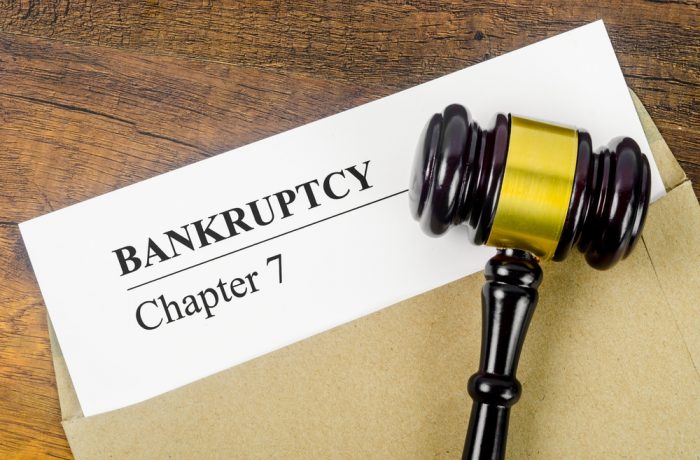Bankruptcy filings in the United States saw a significant spike in August 2024, following a brief slowdown in July. According to S&P Global Market Intelligence data, the number of filings for the year through August has reached the highest levels since 2020 and the second-highest since 2010. This surge reflects the growing economic challenges individuals and businesses face amid rising interest rates, inflationary pressures, and tighter credit conditions. Understanding the trends and legal processes involved is crucial for those considering filing for bankruptcy, especially in high-cost states like New York.
Key Trends in U.S. Bankruptcy Filings in 2024
The increase in bankruptcy filings in August marks a turning point after a relatively quieter July. Several factors have contributed to this spike:
- Economic Uncertainty: Persisting economic uncertainty, driven by fluctuating inflation rates and slow economic growth, has led to more businesses and individuals reaching financial breaking points.
- Higher Interest Rates: The Federal Reserve’s ongoing efforts to curb inflation have resulted in higher interest rates, increasing consumer and business borrowing costs. As debts become more expensive, more entities cannot meet their financial obligations.
- Tightening Credit Conditions: With banks tightening credit conditions due to increased risks, many businesses, especially small and mid-sized ones, find it challenging to secure the necessary funding to stay afloat.
- Sector-Specific Challenges: Certain sectors, such as retail, real estate, and manufacturing, are more vulnerable to these economic shifts, leading to a disproportionate number of bankruptcy filings within these industries.
- Post-Pandemic Aftermath: While the immediate impact of the COVID-19 pandemic may have waned, its long-term effects on businesses—such as accumulated debt and disrupted supply chains—continue to push many into financial distress.
Understanding Bankruptcy: Chapter 7, Chapter 11, and Chapter 13
Bankruptcy can provide a fresh start for individuals and businesses struggling with unmanageable debt, but the type of bankruptcy filed depends on the specific circumstances and goals of the debtor. The most common types of bankruptcy filings include:
- Chapter 7 Bankruptcy: Often called “liquidation bankruptcy,” Chapter 7 is available to individuals and businesses. In this filing type, non-exempt assets are sold to pay off creditors. It is generally the quickest form of bankruptcy, taking about three to six months, resulting in most unsecured debts being discharged.
- Chapter 11 Bankruptcy: Commonly used by businesses, Chapter 11 allows companies to reorganize their debts while continuing to operate. This type of bankruptcy is more complex and costly, often requiring significant time to negotiate a repayment plan with creditors. Large corporations like retailers and airlines frequently use Chapter 11 to restructure their operations and balance sheets.
- Chapter 13 Bankruptcy: Known as “reorganization bankruptcy” for individuals, Chapter 13 involves creating a repayment plan that typically lasts three to five years. This option suits those with a steady income but need time to catch up on overdue debts, such as mortgage arrears.
Bankruptcy Filings in New York: What You Need to Know
As economic conditions tighten, New York, one of the most expensive states to live and do business in, has seen an increase in its share of bankruptcy filings. Understanding the specific process for filing for bankruptcy in New York is vital for residents and businesses considering this option. This knowledge empowers you to make informed decisions about your financial future.
Filing for Bankruptcy in New York: The Process
- Means Test for Chapter 7: To qualify for Chapter 7 bankruptcy in New York, individuals must pass a means test comparing their income to the state’s median income. If the individual’s income is below the median, they qualify for Chapter 7; otherwise, they may need to file for Chapter 13.
- Credit Counseling and Financial Management Courses: Before filing for bankruptcy, New York residents must complete a credit counseling course from an approved agency within 180 days before filing. After filing, a debtor education course must also be completed before receiving a discharge.
- Choosing the Right Bankruptcy Court: New York is divided into four bankruptcy court districts—Southern, Eastern, Northern, and Western—each serving different counties. Filers must choose the correct court based on their residence or business location.
- Exemptions in New York Bankruptcy Filings: New York offers federal and state exemptions to protect certain assets during bankruptcy. Debtors can choose between the two sets of exemptions based on which offers better protection for their assets. Common exemptions include the homestead exemption, which protects equity in a primary residence, and exemptions for personal property, retirement accounts, and tools of trade.
- Automatic Stay: When filing for bankruptcy in New York, an automatic stay goes into effect immediately. This stay halts most collection actions against the debtor, including foreclosure, wage garnishment, and lawsuits, temporarily relieving creditor harassment.
Bankruptcy Trends in New York
New York, being a financial hub, has a unique bankruptcy landscape. In August 2024, bankruptcy filings in New York mirrored the national trend of increased filings, particularly among small businesses in the retail, hospitality, and real estate sectors. High living costs and operating expenses in New York City contribute significantly to these numbers, pushing many entities toward bankruptcy as a last resort.
Preparing for Bankruptcy in New York: Key Steps
If you are considering filing for bankruptcy in New York, here are some essential steps to take:
- Consult with a Bankruptcy Attorney: Navigating the complexities of bankruptcy law can be challenging. An experienced bankruptcy attorney in New York can provide valuable guidance on the best type of bankruptcy for your situation, help protect your assets, and ensure all legal requirements are met.
- Gather Financial Documentation: Accurate financial records, including income statements, tax returns, lists of assets and debts, and recent bank statements, are crucial for the bankruptcy filing.
- Understand the Impact on Your Credit: Filing for bankruptcy will significantly impact your credit score, remaining on your credit report for seven to ten years. However, it also offers many a chance to rebuild credit after discharging overwhelming debt.
- Consider Alternatives to Bankruptcy: While bankruptcy can provide a fresh start, it is not always the best solution. Alternatives such as debt consolidation, negotiation with creditors, or seeking credit counseling may be more suitable depending on your financial situation.
- Prepare for the 341 Meeting: Known as the “meeting of creditors,” the 341 meeting is a mandatory part of the bankruptcy process where the debtor is questioned under oath about their financial affairs. Being prepared and having your attorney present can help ensure the meeting goes smoothly.
Navigating the Spike in Bankruptcy Filings
The surge in U.S. bankruptcy filings in August 2024, coupled with the complex financial landscape, underscores the importance of being prepared and informed about the bankruptcy process. For those in New York, understanding the specific requirements, exemptions, and legal nuances is critical to making informed decisions that best protect one’s financial future.
Whether you are an individual facing mounting debts or a business struggling to stay afloat, consulting with a qualified attorney and exploring all available options can help you navigate these challenging times. Bankruptcy may be daunting, but for many, it offers a path to financial stability and a fresh start. As the economic landscape evolves, staying informed and prepared is the key to overcoming financial adversity.
Bankruptcy is not the end; it’s a new beginning. Allow yourself to have a fresh start. Contact the Bankruptcy Law Firm of Figeroux & Associates today. Call 855-768-8845 or visit www.askthelawyer.us to book a consultation. The lawyer you hire does make a difference!





